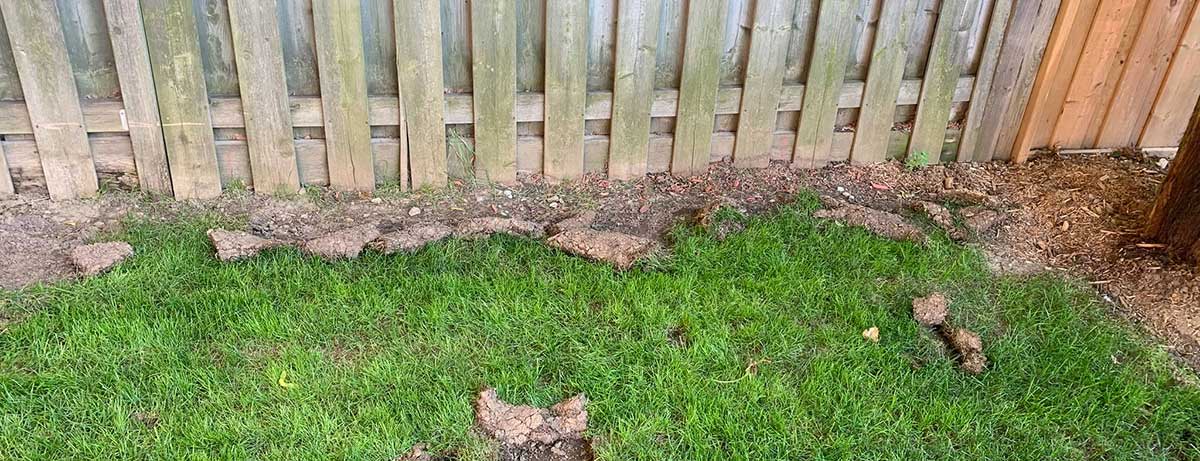Raccoons can be pesky creatures that invade your space uninvited, so it's important to understand what risks they present and how you can prevent them from intruding. In this blog post, we'll discuss the dangers posed by these wild animals as well as what proactive measures you can take to protect your backyard.
Why Are There Raccoons in My Backyard?
The first step to successful raccoon control is understanding why raccoons are drawn to properties where humans and domestic animals live.
- Food sources including attractants such as compost piles, vegetable gardens, fruit trees, and pet bowls can become an endless buffet for raccoons.
- Sheds, garages, and hollow spaced under decks can double as shelters for raccoons during inclement weather, when hiding from predators, and for pregnant raccoons.
- Dark backyards appeal to raccoons because they provide the perfect cover for movement and shelter.
- Water sources are a natural draw for raccoons, not only for their survival but because these creatures have a habit of washing their food. Water sources can include pet water bowls, fountains, and ponds.
- Unsealed trash cans left outside between garbage days are a main attraction for raccoons. They can even use their sharp claws and teeth to open closed lids.
- Raccoons will often dig through lawns in search of grubs and insects to eat
What Risks and Concerns Do Raccoons Bring?
As raccoons are classified as wildlife, there are several risks and concerns to having raccoons frequent and nest on your property.
- Property damage caused by raccoons: Damage caused by raccoons can lead to costly repairs in and around your property. A raccoon will use its claws and teeth to rip openings in shingles, soffit vents, insulation, HVAC pipes, and walls. They will also dig holes in the lawn in search of food.
- Raccoon-transmitted diseases and health risks: Humans can contract serious diseases if bitten or scratched by a raccoon. Encountering raccoon poop and urine can also increase the risks of contracting rabies, leptospirosis, and pseudorabies.
- Impact on other wildlife and pets: Domestic animals and other wildlife can also be at risk for rabies, canine distemper, raccoon parvoviral enteritis, and infectious canine hepatitis from ingesting contaminated water, raccoon poop, being scratched or bitten by a raccoon, and through contact with raccoon urine.
- Noise and disturbances: The annoying sounds and other disturbances a raccoon can cause may be of less concern but can still be a nuisance all the same. Raccoons, especially kits, constantly “chatter” with squeals, squeaking, snorting, snarls, and crying.
How Can I Deter Raccoons from My Backyard?
While raccoons have the intelligence and instinct to survive in the wild, they have quickly adapted to fending for themselves in our world. There are several measures you can take to help deter the critters from settling in your backyard.
- Proper garbage management: As food is the main attraction for raccoons, protect all garbage bins with secured tight-fitting lids, weights, or clamps. You can also store garbage in a locked shed.
- Eliminate food sources: Remove all outdoor pet bowls, wildlife feeders, and stocked food from the yard. Any chicken or rabbit coops should be properly fenced and secured.
- Gardens and compost piles: Vegetable gardens should be protected with chicken wire and fencing to prevent raccoons from accessing the produce. Compost piles should be kept in bins with secure lids.
- Fencing and physical barriers: In yards where fencing is deemed the best solution, install above and underground barriers such as large rocks, patio blocks, and concrete pads to prevent raccoons from digging under the fencing.
- Motion-activated deterrents: As these wildlife move around mostly after dark, use raccoon deterrents such as motion-activated lighting in and around the yard.
- Scents and taste deterrents: Raccoons are “super smellers” as they can detect the odour of food from a great distance. Use repellents such as ammonia, soap flakes, or mustard oil around the yard to discourage raccoons.
- Raccoon-proofing structures and buildings: Seal any gaps or openings to your house, shed, and garage, especially those located on the roof, through vents, and near the foundation. Trim tree branches that overhang into the yard.
Hire Hawkeye for Raccoon Control
To protect yourself and your property, contact Hawkeye Bird and Animal Control for raccoon removal, control, and prevention. We are the only pest bird and animal/wildlife control company in Canada to be designated "Certified Wildlife Control Professional" AND hold the following licenses: Trapping of Fur Bearing Animals Permit, Falconry Permit, and Pest Control License.
Specializing in humane and natural raccoon control, we offer permanent and guaranteed solutions. We service residential, commercial, and industrial properties.
Contact us or email [email protected] for assistance with raccoons or other wildlife in your backyard.














